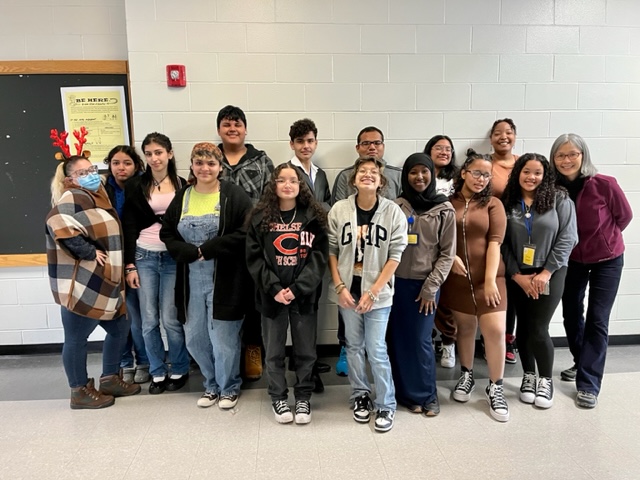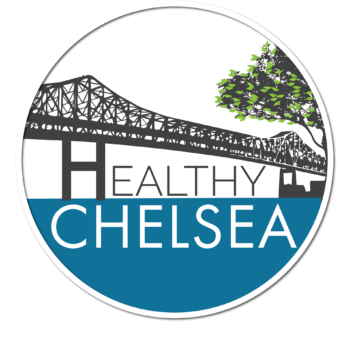Healthy Chelsea Youth Engagement & Leadership Development
Healthy Chelsea launched two initiatives aimed at empowering young people to take charge of their health and wellbeing. The first is the Youth Food Movement, which is focused on educating young people about healthy food choices and the benefits of a balanced diet. The second initiative is the Teen Action Project, which encourages young people to take an active role in their community by volunteering and participating in community service projects. Both of these programs are designed to provide young people with the skills and knowledge they need to make healthy choices and to become active and engaged members of their community.
Youth Food Movement
Youth Food Movement (YFM) is a paid internship for Chelsea resident High School Students.
The goal is to empower students with food literacy education and enhance their knowledge of food systems so that they have the tools to identify issues in food systems and act to promote change.
Interns meet with Healthy Chelsea coordinators throughout the school year to engage in activities that include training on food systems, agriculture, healthy eating, food culture and local food resources.
The group engages their peers and the school food service by conducting an annual school food survey. When the students have collected their data, they advocate for change by presenting their findings to school food service team.
Students are given the opportunity to meet with guest speakers, collaborate with GreenRoots Youth members and work within the community gardens and help promote health and wellness within their community.
Teen Action Project
Teen Action Project (TAP) is an enthusiastic group of high school students grades 9-12.
What youth do:
- meet weekly with the DFC project coordinator and mentors to learn about their community
- share their insights on youth substance use and the connection with mental health, availability of substances, misperceptions on harm of substances, lack of knowledge as well as social determinants of health
- engage in meaningful conversations and impactful discussions and come up with ideas on how to best support youth development in Chelsea
- motivate peers and adult community members to understand and engage in prevention work.
- Contribute to bringing awareness around youth substance use and mental health
What youth gain:
- leadership and advocacy skills and exposure to public health and civic engagement opportunities
- workplace and life skills
- build meaningful relationships with their peers and their adult advisors
- earn school credits
- earn wages
- connection to resources and opportunities for internships, jobs, pre-college programs


